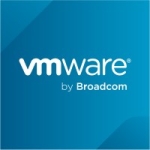I have been working as an Oracle consultant for more than fifteen years and have dealt with several customers with several use cases who seek a simple database for usage. Some of the customers whom I have dealt with are into data warehousing, while others were some big banks and so on. In general, I have dealt with a very different set of customers.
The most valuable features of the solution revolve around its performance, simplicity, and its installation phase.
It is not the features of the product that require improvement. Oracle's product support is an area of concern where improvements are required. The support team should respond faster to users facing issues with Oracle products. I work in Germany, and if I open a service request with the support team of Oracle at eight o'clock in the evening, I will most likely get connected to an engineer working in the USA at eight o'clock the next evening, which is not good.
I have been using Oracle Database Appliance for twenty-five years.
It is a very stable solution.
If the solution is deployed on an on-premises model, it doesn't offer much scalability to users. Users who have deployed the solution on the cloud get the option to scale up or scale down.
I deal with more than 700 customers who use the services provided by Oracle services.
The solution's technical support is very bad.
The product's initial setup phase was straightforward for me, though some of the tool's customers found it difficult. With a good starting point, installing and using Oracle is very easy.
Nowadays, we use scripts, so the installation and implementation can be done in an hour or two. Ten years ago, the deployment took place over a period of two or three days. Ultimately, the time needed to deploy the product depends on how the people involved in the deployment phase use the environment on the customer side.
Speaking about the product's deployment process, I can say that Oracle has different products. When I want to install the database software from Oracle, I use the graphical interface of Oracle with fifteen, nineteen, or twenty pages and click through the radio buttons or use a script to configure the file and attach it to my installation process to complete the installation phase. There are no simple steps for the installation of the database from Oracle. When I want to install some application, the installation process may seem more complex since I have no experience in it.
The solution is deployed on the cloud and on an on-premises model.
Oracle Database Appliance is a very expensive solution. If you have opted for the on-premises licenses from Oracle, then you have to pay yearly. If you have opted for the cloud subscriptions offered by Oracle, then you can pay either monthly or yearly.
If you want to use Oracle licenses and some hardware, then you need to buy the hardware separately. If a customer of Oracle wants to buy internet systems, they can choose it from the hardware provided by Oracle. In short, customers only pay for the hardware they purchase from Oracle and not for any additional services.
I recommend that those who plan to use Oracle go ahead with their plans. I would also suggest they speak with the partners of Oracle, as they are the ones who are much more interested in solving the problems of customers. From my point of view, Oracle is more interested in selling products and not solving problems or giving solutions to customers.
I rate the overall tool a nine out of ten.


















